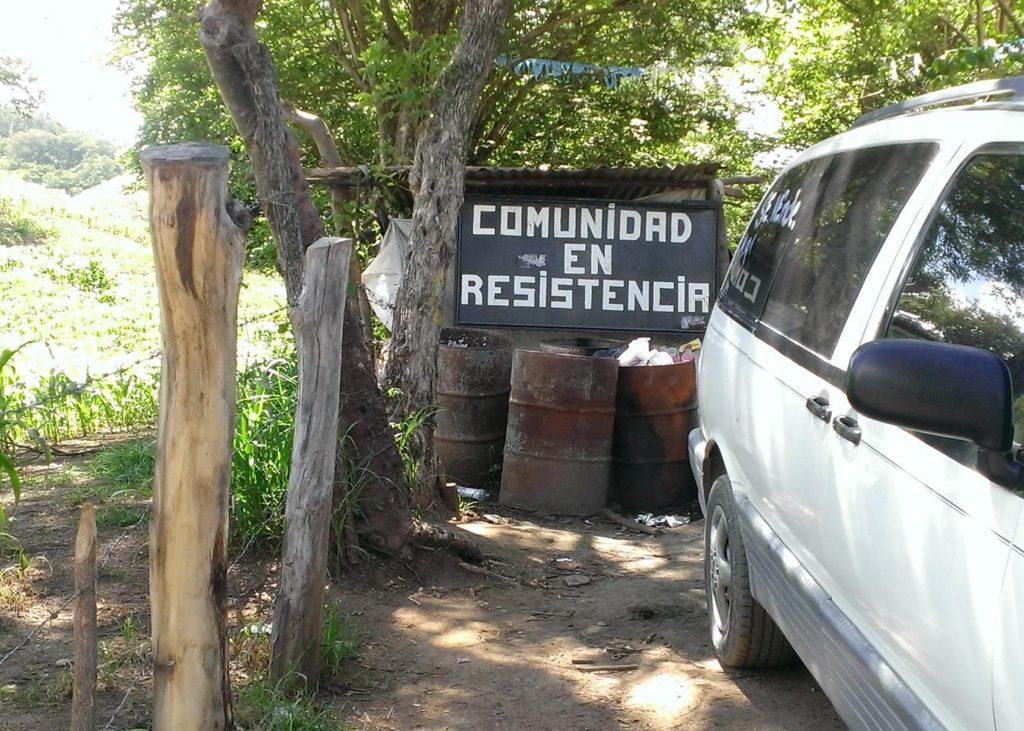One must often travel far to really get a glimpse of why it is worth working for global justice. It is not enough to get on an airplane to somewhere, you have to keep going to reach the people we support and work with.
Bad roads and difficult terrain is the norm, so imagine the surprise when, as you get closer to the partner organisation, the road turns into a perfect, newly constructed highway, even though you are far away from larger cities, in the countryside of Guatemala. That is how you know you are getting close to people under threat from industrial projects or massive monoculture plantations, for the roads lead directly to open cast mines or agricultural projects that are mushrooming all over the country.
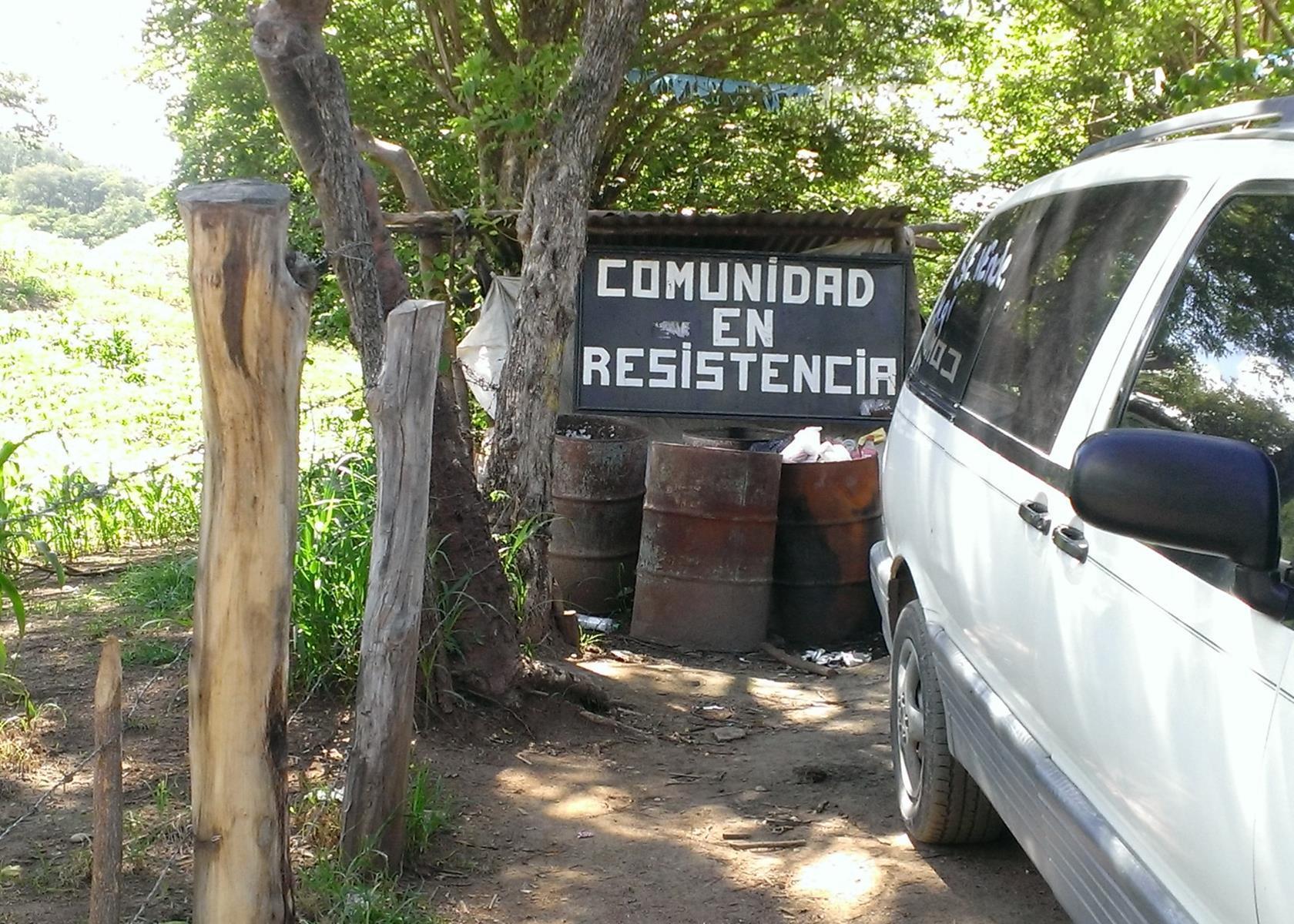 The very last steps on the way to the villages around the La Puya mine we leave our bus and must walk, past police units and barricades, to reach the Communidad en Resistencia. There, today, we will share communion at a Mass held in an open tent close to the mine. Hundreds of villagers expect us, along with priests from the region, and we – a CIDSE delegation with bishops and priests from Spain, Switzerland, Belgium and Ireland as well as experts from the Catholic development organisations Trócaire, Fastenopfer, Broederlijk Delen and Manos Unidas – will celebrate with them today. A Mass of solidarity, since the mining here happens without the involvement of the local community, on a license given by the central government in breach of international regulations and basic democratic principles. The only state institutions providing for the local communities are police and military, supported by the security of the company Exmingua (Extracciones Mineras de Guatemala) that we encounter. They are there not to help the locals, but to make sure that the events of May 23, 2014, do not repeat themselves. Then, the locals blockaded the street, demanding to be heard, demanding a review of the mine since experts had found poisonous arsenic in water coming from the mine. On May 23, 2014, the military police violently drove the protesting people away. In addition to the physical injuries, a deep cut was made to their souls. No-one protects them. What they ask for is an end to the sale of their land by the state to transnational corporations in order to satisfy a hunger for their natural resources: gold, silver, minerals, oil, gas… There is no single example of a mine that would have benefited the local population in Guatemala. The gains go to others, far away, and the farmers lose their land. Often without compensation.
The very last steps on the way to the villages around the La Puya mine we leave our bus and must walk, past police units and barricades, to reach the Communidad en Resistencia. There, today, we will share communion at a Mass held in an open tent close to the mine. Hundreds of villagers expect us, along with priests from the region, and we – a CIDSE delegation with bishops and priests from Spain, Switzerland, Belgium and Ireland as well as experts from the Catholic development organisations Trócaire, Fastenopfer, Broederlijk Delen and Manos Unidas – will celebrate with them today. A Mass of solidarity, since the mining here happens without the involvement of the local community, on a license given by the central government in breach of international regulations and basic democratic principles. The only state institutions providing for the local communities are police and military, supported by the security of the company Exmingua (Extracciones Mineras de Guatemala) that we encounter. They are there not to help the locals, but to make sure that the events of May 23, 2014, do not repeat themselves. Then, the locals blockaded the street, demanding to be heard, demanding a review of the mine since experts had found poisonous arsenic in water coming from the mine. On May 23, 2014, the military police violently drove the protesting people away. In addition to the physical injuries, a deep cut was made to their souls. No-one protects them. What they ask for is an end to the sale of their land by the state to transnational corporations in order to satisfy a hunger for their natural resources: gold, silver, minerals, oil, gas… There is no single example of a mine that would have benefited the local population in Guatemala. The gains go to others, far away, and the farmers lose their land. Often without compensation.
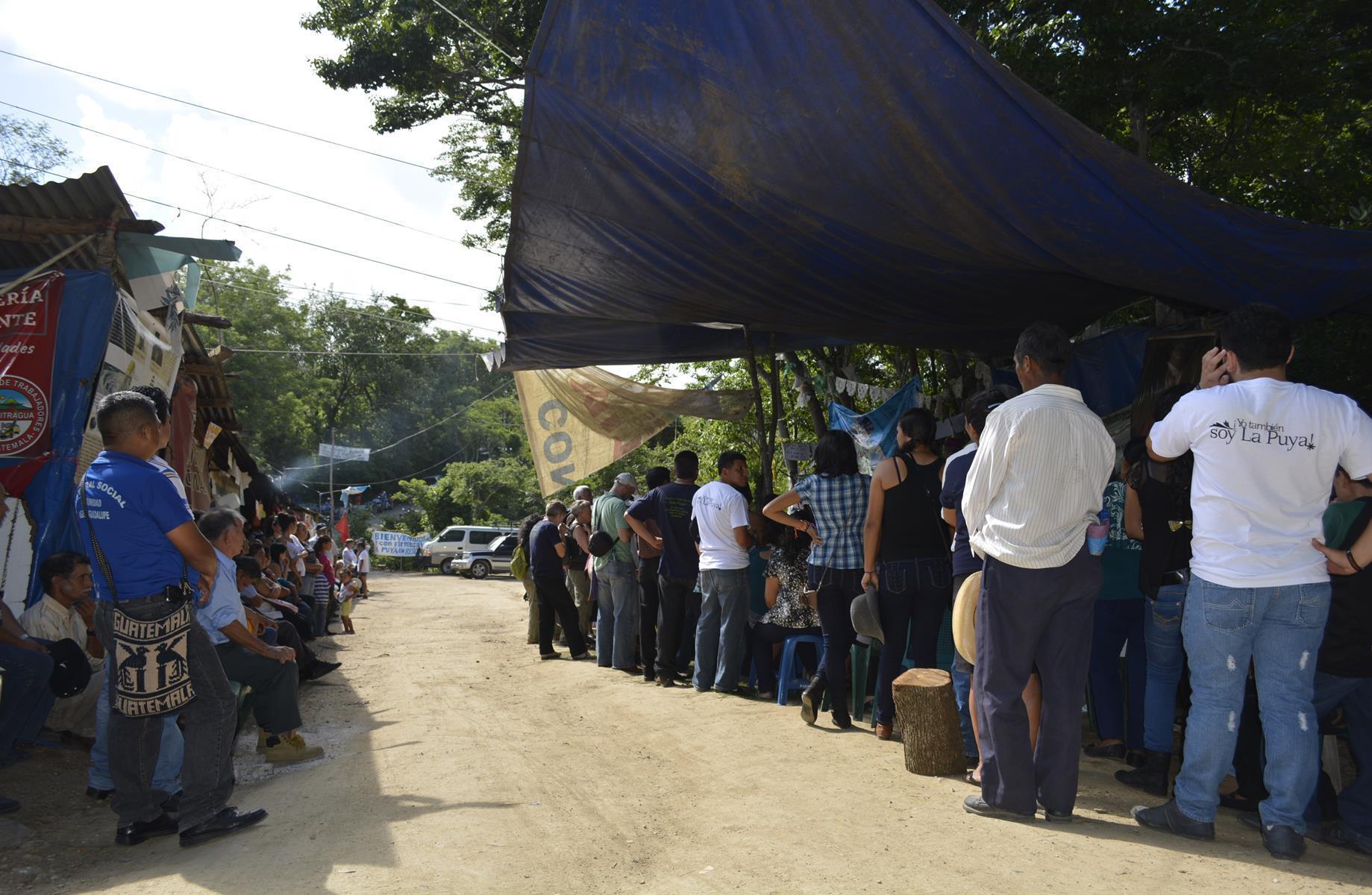 The media, the newspapers scream that activists, communists, terrorists oppose the development of the country. However, in La Puya, those “activists“ are the local Catholic community. In the Quiché region the ones suffering from the land grabs are a Maya-people, the Ixil. It is not the first time they suffer, either. In the 80’s, they were the target of a military campaign of scorched earth tactics, genocide and displacement. Witnesses told me, for hours, of the details of massacres of their families, their neighbours, of how the Ixil children were taken from their parents, passed on by the military to be sold to the US and Europe, or even to organ traders. The only way I could cope with the stories told was by seeing in the faces of the people telling them how important it was for them to be heard.
The media, the newspapers scream that activists, communists, terrorists oppose the development of the country. However, in La Puya, those “activists“ are the local Catholic community. In the Quiché region the ones suffering from the land grabs are a Maya-people, the Ixil. It is not the first time they suffer, either. In the 80’s, they were the target of a military campaign of scorched earth tactics, genocide and displacement. Witnesses told me, for hours, of the details of massacres of their families, their neighbours, of how the Ixil children were taken from their parents, passed on by the military to be sold to the US and Europe, or even to organ traders. The only way I could cope with the stories told was by seeing in the faces of the people telling them how important it was for them to be heard.
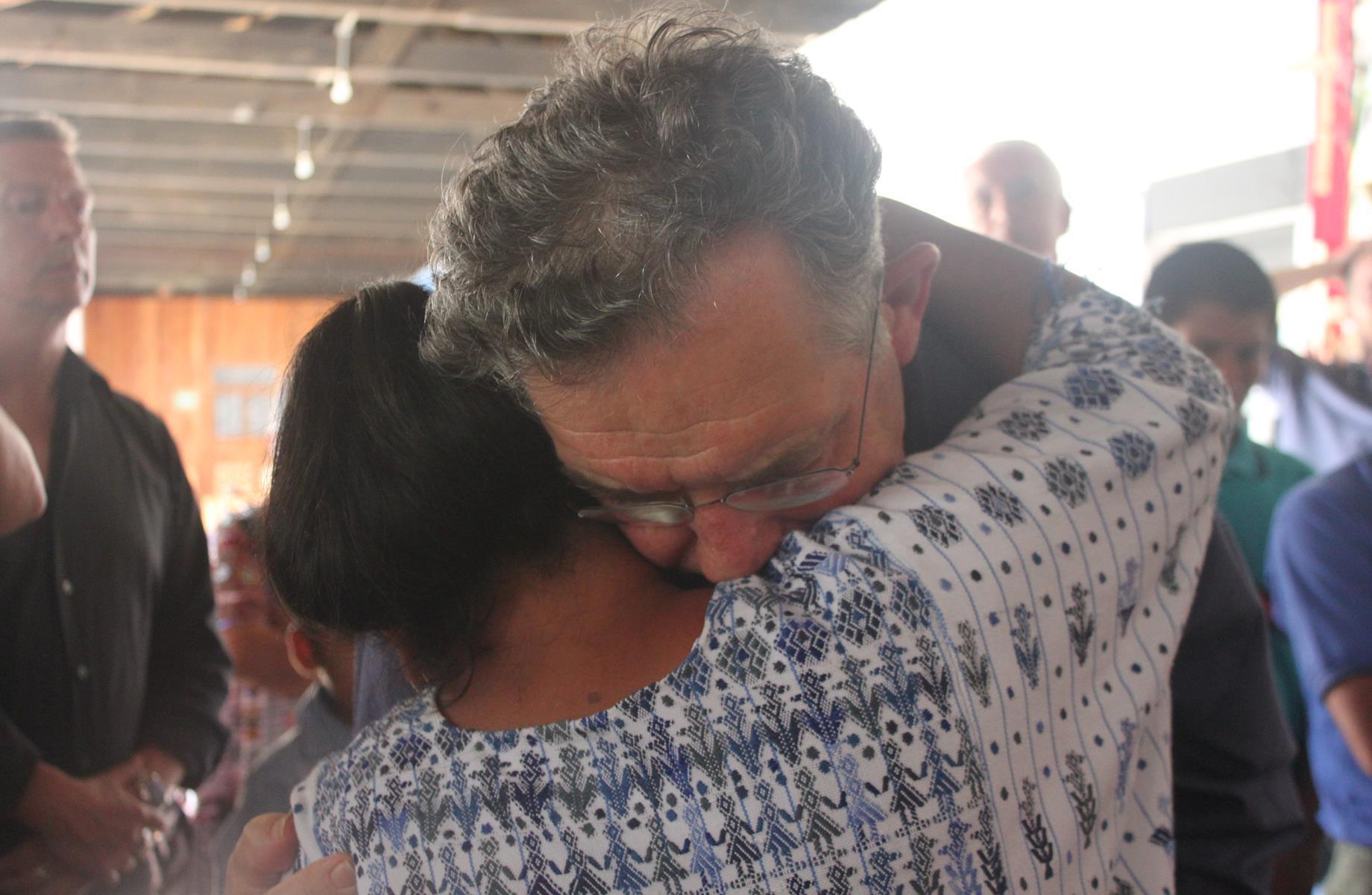 In the village of Coban pictures of the murdered hang on the walls, and for each “disappeared” villager, a cross. Tears flowing, bishops, priests and victimised families wrap their arms around each other. But rather than accept this genocide happened, the government continues to ignore both legal sentences and the eternal row of witnesses. The people do not receive compensation for their suffering, but instead the genocide continues in the form of removal of rights, through violence in the cause of “development” through mining and monoculture for export – export to fill our cars with biofuel from palm oil and sugar cane.
In the village of Coban pictures of the murdered hang on the walls, and for each “disappeared” villager, a cross. Tears flowing, bishops, priests and victimised families wrap their arms around each other. But rather than accept this genocide happened, the government continues to ignore both legal sentences and the eternal row of witnesses. The people do not receive compensation for their suffering, but instead the genocide continues in the form of removal of rights, through violence in the cause of “development” through mining and monoculture for export – export to fill our cars with biofuel from palm oil and sugar cane.
We celebrate a Mass with the Ixil people, in their language, one of the nine languages spoken just in the diocese of Quiché. Bishop Rosolino Bianchetti has studied the language and says Mass in Ixil and Spanish in front of the 500 attending Mass in San Juan Cotzal .
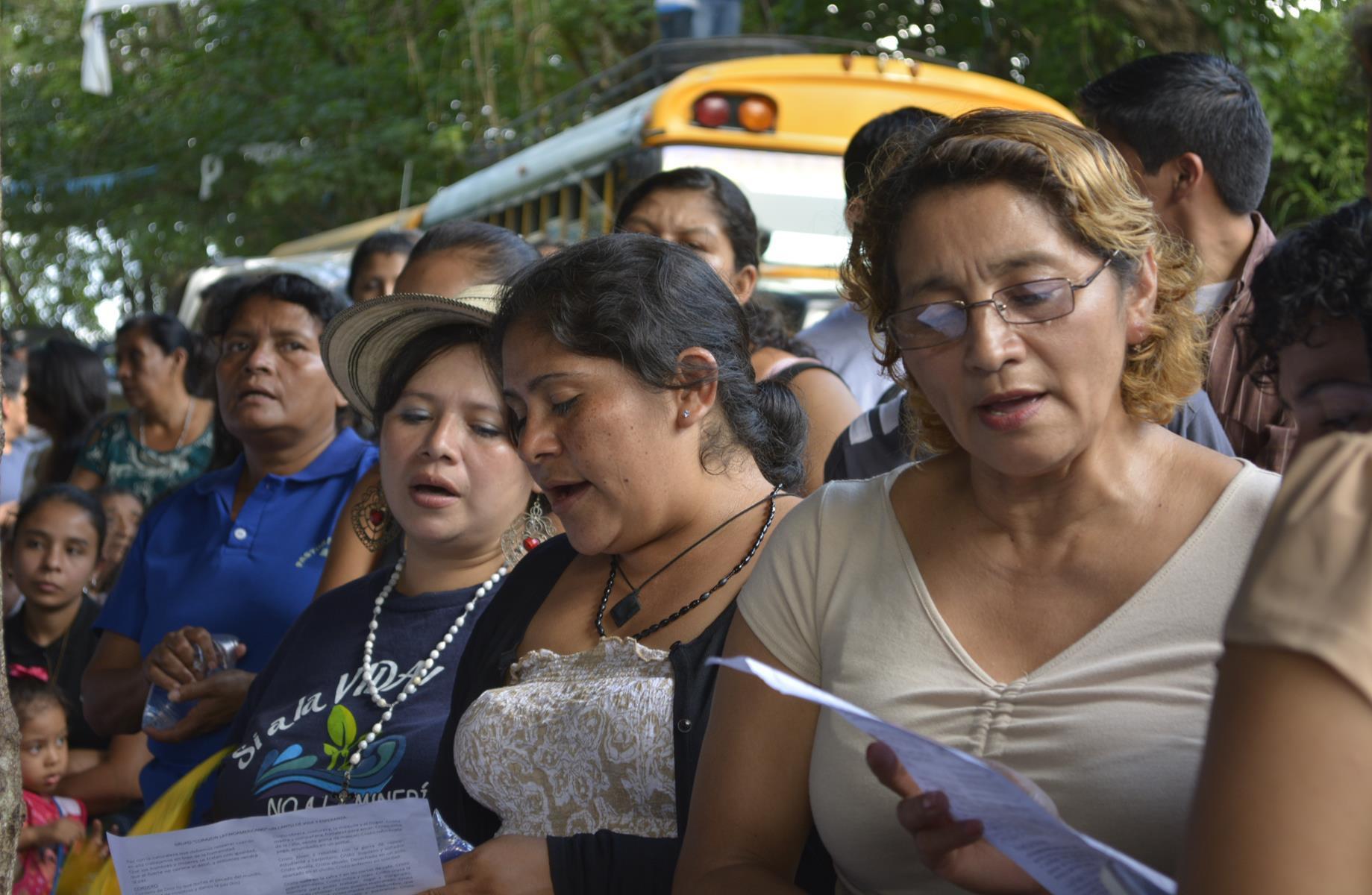 At the same time, over 9000 kilometres away the UN Human Rights Council meets in Geneva. On the agenda: rules for corporations to respect human rights. CIDSE has gathered witness statements from Guatemala and other countries and transmits them to the UN. The Vatican has spoken out in favour of a binding UN-treaty for states and companies. The tension rises. A while ago we were following a football match with the same excitement, now we wait for the result from the vote, until we hear from the CIDSE-delegation in Geneva: Success! The votes of the EU and the US have been defeated, a majority of countries has voted to open negotiations over binding rules.
At the same time, over 9000 kilometres away the UN Human Rights Council meets in Geneva. On the agenda: rules for corporations to respect human rights. CIDSE has gathered witness statements from Guatemala and other countries and transmits them to the UN. The Vatican has spoken out in favour of a binding UN-treaty for states and companies. The tension rises. A while ago we were following a football match with the same excitement, now we wait for the result from the vote, until we hear from the CIDSE-delegation in Geneva: Success! The votes of the EU and the US have been defeated, a majority of countries has voted to open negotiations over binding rules.
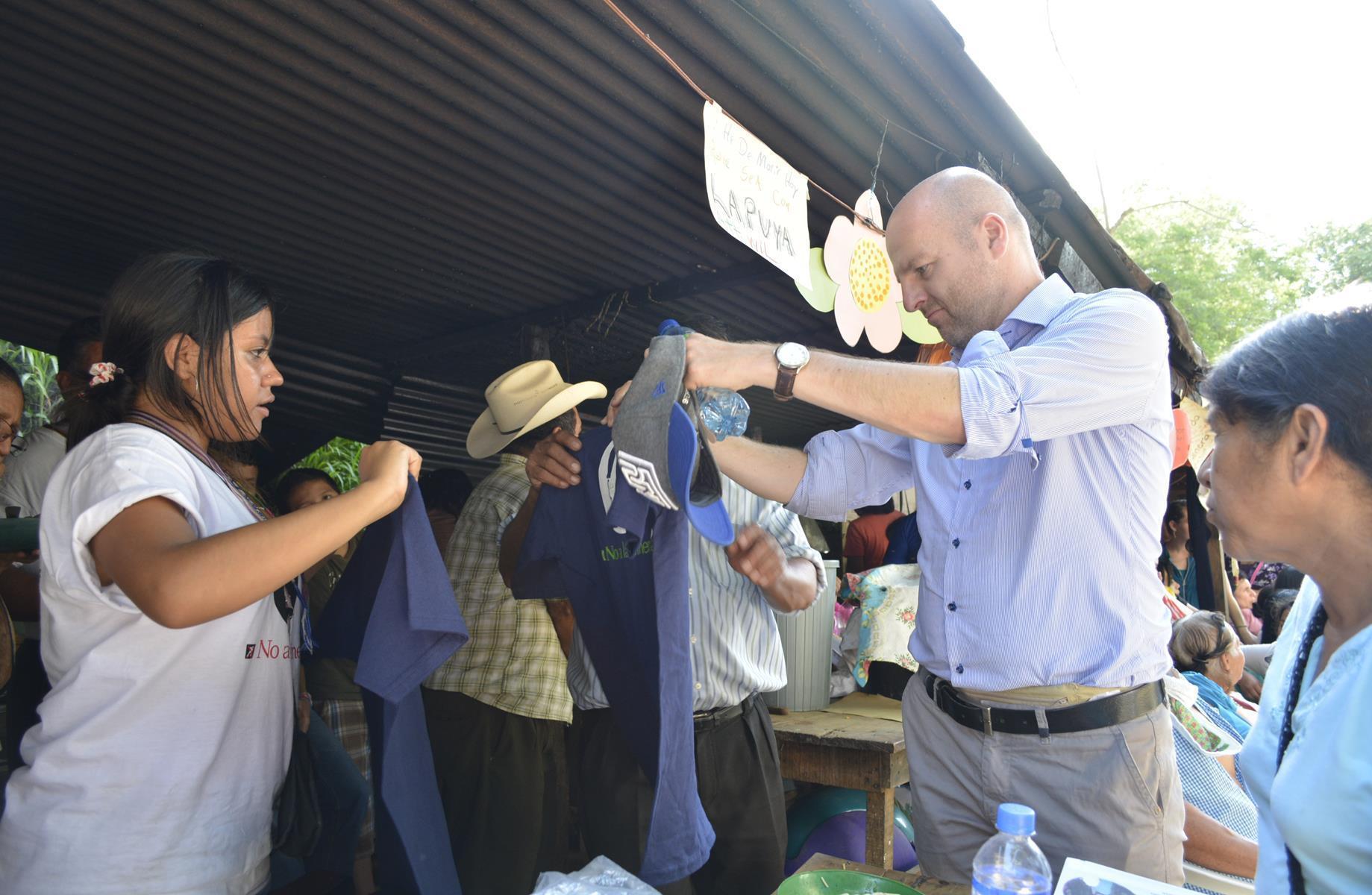 Will the people in Guatemala notice? Will the companies and governments respect their rights and involve them in decisions that affect their lives in the future? Experts are sceptical: governments and those with an interest in the status quo will do everything to stop this. In Guatemala, as worldwide, it will be up to a strengthened civil society to help marginalised populations. The EU and its member states could help, if they did not only use their interest in raw materials and resources as a measure for what is right, but included their rhetoric on human rights, on the fight against poverty in their actual politics. It is a long way from the capital to the affected regions, but we hope the diplomats we met with would make the trip. It would be an important gesture, and is a chance for the EU to take a step towards directing its policy to meet the interests of the poor and dispossessed.
Will the people in Guatemala notice? Will the companies and governments respect their rights and involve them in decisions that affect their lives in the future? Experts are sceptical: governments and those with an interest in the status quo will do everything to stop this. In Guatemala, as worldwide, it will be up to a strengthened civil society to help marginalised populations. The EU and its member states could help, if they did not only use their interest in raw materials and resources as a measure for what is right, but included their rhetoric on human rights, on the fight against poverty in their actual politics. It is a long way from the capital to the affected regions, but we hope the diplomats we met with would make the trip. It would be an important gesture, and is a chance for the EU to take a step towards directing its policy to meet the interests of the poor and dispossessed.
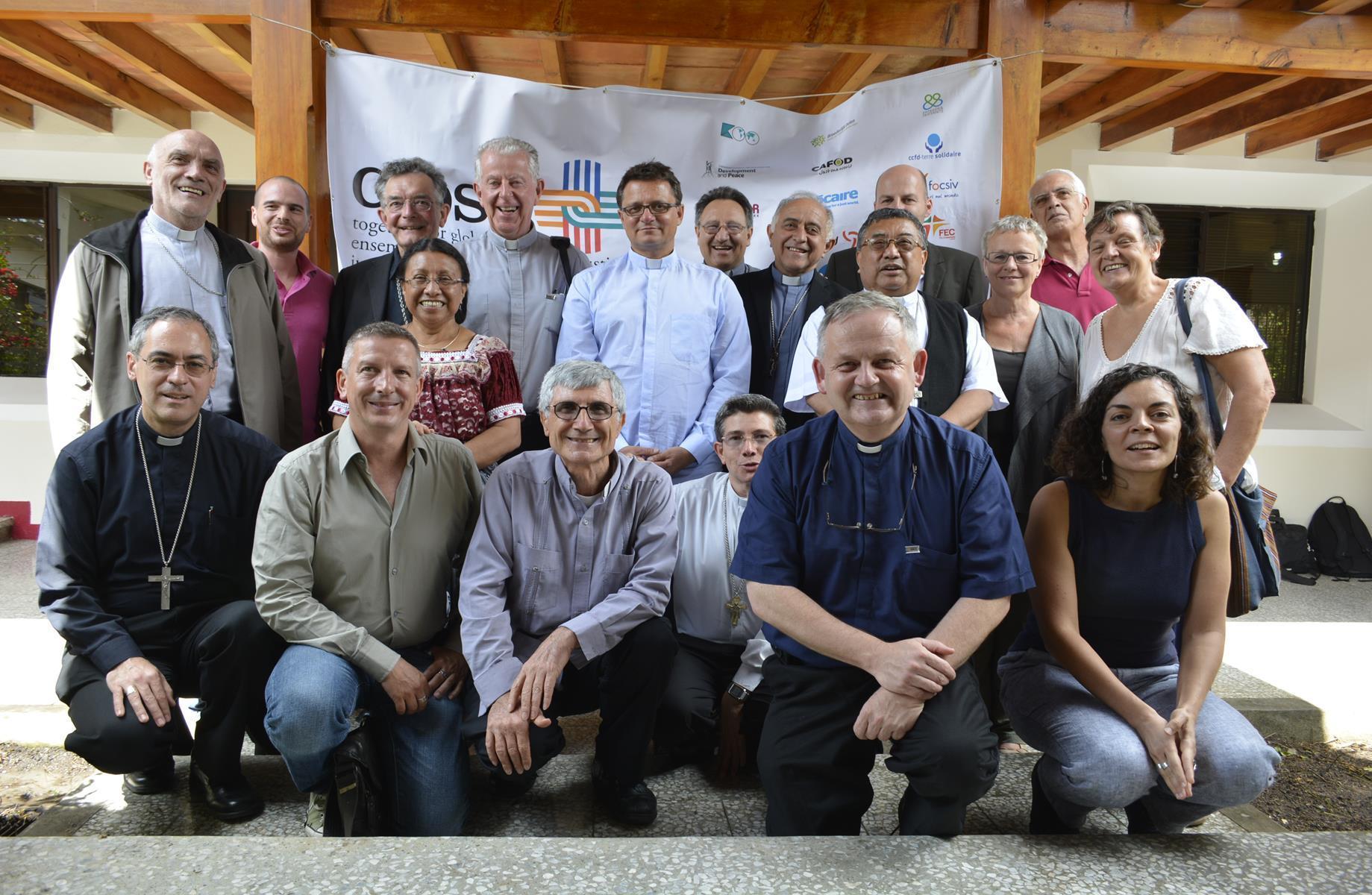 Deep impressions of the great work of our local partners, of the terrible accounts I’ve heard, but also of a hope for a future in justice and peace lead me on the way back to Brussels, where much work still awaits. Work that may play a small part to change the conditions for the people locally, in Guatemala, for the better, maybe by corporations and governments following a minimum of rules, and maybe, hopefully, by letting our partners work without fear of arrest, harassment and violence.
Deep impressions of the great work of our local partners, of the terrible accounts I’ve heard, but also of a hope for a future in justice and peace lead me on the way back to Brussels, where much work still awaits. Work that may play a small part to change the conditions for the people locally, in Guatemala, for the better, maybe by corporations and governments following a minimum of rules, and maybe, hopefully, by letting our partners work without fear of arrest, harassment and violence.
Bernd Nilles
Report of the Bishops’ tour to Guatemala
More images from the Bishops’ tour
To learn more about our relationship with extractives:
The Lenten campaign of Fastenopfer
Food Not Fuel from Trocaire.

